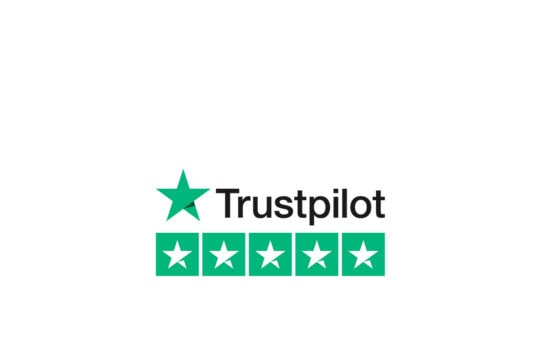Ergonomics
In many ways a business or organisation is like a machine. It works most effectively when all the individual pieces are well-maintained and fit together comfortably. Ergonomics is a tool which can be used to promote the health of your organisation.
It is often associated with the prevention of musculoskeletal disorders such as RSI (Repetitive Strain Injury) and back pain, which can affect office workers. However, ergonomics isn’t restricted to the office environment, nor is it restricted to tackling physical ailments. Ergonomics is about ensuring health and well-being certainly, but is also about optimising productivity and efficiency.
This can be done on an individual scale – such as when conducting an assessment for a staff member reporting ill health or returning to work. It can also be done on a company-wide scale if broader issues are suspected to be contributing to poor health of workers or low productivity.
What is ergonomics?
Ergonomics is the study of the interaction between human beings and their working environment. It can be applied directly to the user or to the design of equipment and systems within a number of industries to improve health and safety and work efficiency. It is most commonly thought of in relation to computer use.
Ergonomics incorporates task analysis tools, subjective and objective assessment of injury, questionnaires, biomechanical assessment and measurement of equipment to determine fit with users.
Our ergonomic department is overseen by our ergonomic consultant and our Occupational Health nurse, together they provide a variety of ergonomic services at a range of price points.
Our ergonomic consultant, who is a qualified physiotherapist and a member of the Association of Chartered Physiotherapists in Occupational Health and Ergonomics (ACPOHE), has experience conducting ergonomics assessments in a wide array of environments, from the offices of investment banks and blue chip law firms in the City of London to the whiskey distilleries of William Grant in Glenfiddich, Dufftown and Bellshill near Glasgow.
Our ergonomic services are tailored to each individual client’s requirements.
We are a SEQOHS-accredited private clinic
What is a Workplace Assessment?
A workplace assessment is also known as a workstation risk review which is carried out by our Occupational Health Nurse.
It is a standard service reviewing the overall management of Display Screen Equipment (DSE) risk at your organisation along with basic DSE assessments for your employees. A report will be provided.
You may prefer a comprehensive workstation assessment for an individual who is suffering from a physical problem or experiencing difficulty at their workstation. This assessment is carried out by our ergonomic consultant. An extended comprehensive workstation assessment can also be undertaken for those employees with increased needs or complex requirements; e.g. registered disabled. A full, detailed report will be provided with tailored recommendations regarding furniture and equipment purchase with special discount rates.
What is a Return To Work Assessment?
A return to work assessment is an extended assessment for an employee returning to work following a period of sickness absence.
This assessment is carried out by our ergonomic consultant. It is more complex than the comprehensive workstation assessments. The exact nature and length of the assessment will depend on the employee’s role e.g. whether in a standard office setting or a role involving manual handling tasks, etc. A full report is provided.
What is a Full Ergonomic Assessment?
A complex undertaking that typically assesses a specific job role or roles (rather than being for an individual).
Often used more in an industrial than DSE setting, the nature and length of the assessment will depend on your organisation’s requirements and is typically carried out over the course of 1-2 days.
We are able to provide ergonomic and workstation assessments at your place of work throughout the London area, conducted by our ergonomic consultant.
You might also be interested in:
Do you provide training?
Yes, we can offer a range of training options:
DSE Assessor Training:
So that you have internally trained staff members. Each training session allows up to 8 members of your staff to carry out basic workstation assessments to comply with DSE regulations.
Manual Handling Training:
Training for up to 8 members of staff on safe manual handling, including task specific risk assessment, in line with Manual Handling Operations Regulations.
We can also offer ergonomics advice and consultancy for health and safety risks associated with DSE use, including recommendations regarding policies and procedures with specific focus on ergonomic, biomechanical and musculoskeletal issues.
How long does an ergonomic assessment take?
For workstation assessments, this can vary from 15-20 minutes for ‘primary intervention’ assessments, designed to prevent the uninjured worker from developing symptoms, to approximately one hour for people with more complex difficulties associated with DSE use, such as employees who are registered disabled.
Return to Work Assessments depend on the nature of the role and can take up to 2 hours, whilst a full ergonomic assessment of a job role or roles usually takes 1-2 days.
Why do I need an ergonomics consultant?
Health and safety legislation dictates that employers assess work tasks, especially those with a foreseeable risk, and make reasonable adjustments to ensure the health, safety and comfort of employees.
In particular, with regards to computer use, the Health and Safety (Display Screen Equipment) Regulations 1992 states that all employees should be assessed at their workstations; that they should receive health and safety training and information about using their workstations and that reasonable adjustments are made to their workstations to ensure their health, safety and comfort. An occupational health nurse and/ or an ergonomics consultant, particularly one with knowledge of posture and body mechanics such as a physiotherapist, can help to identify the contributing factors to discomfort and provide reasonable, cost-effective solutions to meet legal requirements, ensure staff health and enhance productivity.
Protect your Employees' Health - Enquire today.
FAQs
DSE stands for Display Screen Equipment and can mean any visual display unit including video screens and security monitors, but usually refers to computer users. The Health and Safety (Display Screen Equipment) Regulations 1992 sets out a set of standards that employers must adhere to if their staff are classed as DSE ‘users’ (that is that they use a computer for a significant part of their role).






